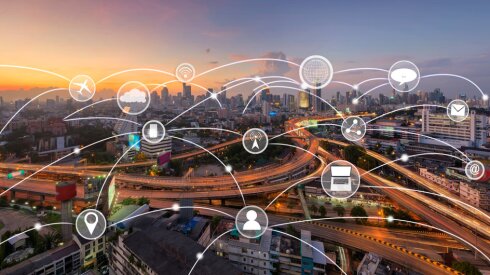Opinion
-
Technology is driving at least two trends in young people that colleges should have an answer for: self-education and loneliness. Meanwhile, employers increasingly value social and collaborative skills that AI cannot provide.
-
From AI ethics and governance on campus to cybersecurity training, quantum computing innovations and 6G connectivity, emerging technologies have given IT leaders a lot to contend with in the near future.
-
Drones can enhance emergency response, but they’re only one part of the public safety toolkit, ideally making the jobs of the officers and first responders safer and more efficient.
More Stories
-
Instead of in-person experiences that people may prefer, we may finally be forced to acknowledge and engage in digital behaviors that young folks have long thought of as not only necessary but normal.
-
The Westminster, Md., mayor and all five council members were able to meet — not in the same place, out of respect for limiting personal contact because of the coronavirus, but all together nonetheless.
-
Hundreds of billions of dollars in sweeping transportation proposals in San Diego County, controversial before the health crisis hit, could be jeopardized in a future where more are comfortable with telecommuting.
-
As unmanned aerial technology advances and regular flight paths sprout up, local authorities and residents will need to have more input over drone operations if the industry is to thrive.
-
In addition to avoiding the cost of settling or litigating lawsuits, providing accessible websites and documents is simply the right thing to do to establish trust and goodwill with the public.
-
Concern about the new coronavirus has forced Americans online for many of their daily needs. This shift away from public spaces — sometimes mandated by public health officials — could mean investment in remote technologies.
-
The public is ready for government chatbots to deliver the high-value customer experience often found in the private sector, according to a survey. The benefits are significant, but developing new technologies will take work.
-
The 2016 presidential election launched a set of cybersecurity concerns that still exist today. With a repeat of the troubles from four years ago seemingly certain, the U.S. is engaged in a cyberwar that it’s losing.
-
Licensing is a critical part of setting and maintaining professional standards. Without a well-designed processing system, however, everybody suffers. Here’s what can be done to ensure a successful transformation.
-
Now that the initial hype around the smart cities movement has begun to fade, gov tech leaders must examine how to use those technologies to do the most good for citizens and stakeholders alike.
-
Disruption has long been a cornerstone of technology innovation, and new “hacks” to old problems remain essential to dreaming up and creating what’s new and what’s next — and asking whether we even need it.
-
Cyberattacks are on the rise at all levels of government, but many small jurisdictions do not have the resources to protect themselves. Their vulnerability affects states and the federal government, who must pitch in.
-
Millennials now outnumber baby boomers in the public-sector workforce, and IT is no exception. Leaders must work with HR and create incentives and pathways to keep the next generation engaged and on board.
-
Technology will dominate how we vote in the 2020 presidential elections, and so will the risks. To avoid problems, we need to get back to the basics with paper ballots and use risk-limiting audits to verify the results.
-
There is often a tension between law enforcement’s use of novel technologies to gather information that might help hold lawbreakers accountable and the civil liberties of the residents they protect.
-
Never the cleanest or simplest process, the caucuses this year were saddled with new procedures, new rules and new mathematical calculations, all requiring specialized training of participants and leaders.
-
Google and Alphabet CEO Sundar Pichai has called for government regulations on artificial intelligence, doing so with an opinion piece in the Financial Times that has left some experts in the space with questions.
-
As Attorney General William Barr calls for Apple to unlock a phone used by the suspect charged with killing sailors at a Florida Navy Base, it is important to consider the privacy implications of setting a precedent.
Most Read




























